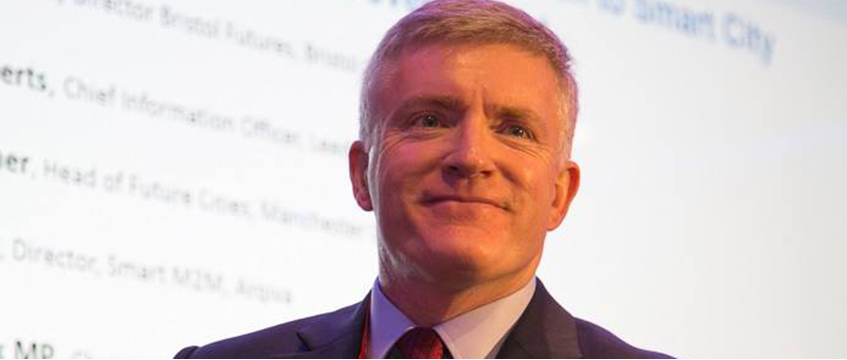It’s a funny old game: political upsides and the spectre of socialism
It was Margaret Thatcher who said that politics is a “funny old game”. Today, our second female prime minister would probably agree. Nothing is certain and a position of strength can disappear overnight, writes Mark Prisk.
Thus Theresa May now leads a minority government, with her authority badly damaged after a bad election campaign, followed by the initial response to the tragedy at Grenfell Tower. Meanwhile, the prospect of a socialist prime minister – a man who has recently advocated the illegal occupation of people’s homes – has become a distinct possibility.
It was Margaret Thatcher who said that politics is a “funny old game”. Today, our second female prime minister would probably agree. Nothing is certain and a position of strength can disappear overnight, writes Mark Prisk.
Thus Theresa May now leads a minority government, with her authority badly damaged after a bad election campaign, followed by the initial response to the tragedy at Grenfell Tower. Meanwhile, the prospect of a socialist prime minister – a man who has recently advocated the illegal occupation of people’s homes – has become a distinct possibility.
So what does this all mean for readers of EG?
First, the government’s legislative programme is smaller than a majority government would have pursued. Getting Brexit right will dominate Westminster, as it should. Beyond that, fewer laws will be passed. I personally think that is a good thing. Too often the measure of parliament by MPs, civil servants and the media has been the number of new laws passed. The result has been too many legal changes and too little scrutiny. We now have the chance to improve the quality of our scrutiny and to deliver less, but better legislation.
Second, some changes which appeared set in stone are now open for debate again. Take the government’s plans for devolving 100% of business rates revenue to councils. The Local Government Finance Bill, which would have enabled this, has been dropped. This raises serious issues for local councils and ministers will have to set out the new path forward. However, this delay could offer an opportunity for reforming the business rates system before a new settlement locks in the existing arrangements.
Third, the proposed Tenants Fees Bill will be published in draft for parliament to scrutinise it before it is formally tabled. I welcome this because it is a piece of legislation which needs careful consideration. A crude, broad-brush ban of all fees and charges to tenants could have unintended consequences. Some landlords, for example, may already be thinking of increasing rents in anticipation of such a ban, to recover higher costs.
There is an opportunity here to properly reform the private rented sector so it treats tenants as consumers, as in any other market. A sector which is open and transparent in the services it provides and the charges it makes. A market which does not let some rogues charge both landlord and tenant for the same work. A market in which the documentation is clear, the charges to all are open and fair and there is real choice for tenants and landlords alike.
On its own the Bill will not solve all the problems in the private rented sector. Increasing supply of more homes to rent is needed to improve choice for tenants and robust regulations and inspections are needed to root out the very worst landlords. However, this Bill could help to create a private rented sector which works better for its customers and so changes the reputation of the sector for good. That is a big prize for all landlords and agents.
Fourth, the election has changed the dynamics of the debate around Brexit. I believe it makes the prospects for a more pragmatic, business-friendly outcome much greater. This is partly because as we engage with the details of its implications for jobs and the economy, so the need for flexibility and sensible implementation periods becomes clearer. I welcome this shift. I have always believed we need to minimise the short-term upheaval and give business enough time to adjust.
Lastly, people ask about the prospect of another election. I suspect that it won’t fall this year. I certainly don’t believe it is in the country’s interests for that to happen. We need a period of quiet, steady government, which lets businesses and families get on with their lives. However, as we have discovered, what should happen and what does happen, aren’t always the same thing. It is indeed a funny old game.
Mark Prisk is Conservative MP for Hertford and Stortford and a former housing minister











